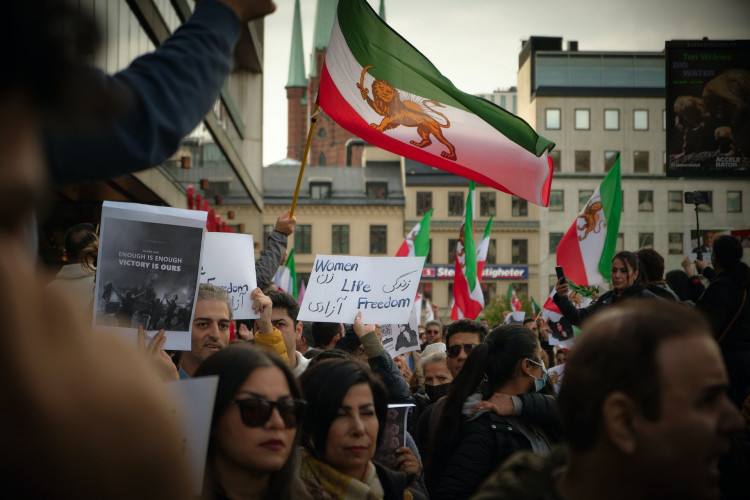According to the pro-reform website Entekhab, Iran's Attorney General Mohammad Jafar Montazeri stated Thursday that the country's parliament and judiciary are reconsidering the country's mandatory hijab law.
Women in Iran are currently required to wear a headscarf in public under stringent Islamic law, which is enforced by the country's so-called morality police.
Montazeri was also quoted as declaring that Iran's feared morality police had been "abolished," but Iranian official media sharply refuted the claims, claiming that the force is overseen by the interior ministry, not the court.
"We know you feel anguished when you witness [women] without a hijab in cities, do you think the officials are silent about it?" Montazeri said. "As someone who is in the field of this issue, I say that both the parliament and the judiciary are working, for example, just yesterday we had a meeting with the cultural commission of the parliament, and you will see the results within the next week or two," as quoted by ISNA, state-affiliated media.
Following the death of Mahsa Amini, 22, who passed away in police custody after being detained by the morality police for allegedly not properly donning her hijab, the laws governing the head covering gave rise to a national protest movement. Mahsa was allegedly detained for this reason.
Amini's family, according to Emtedad news, an Iranian pro-reform media outlet that allegedly spoke to Amini's father, claims she did not have a pre-existing heart condition. Iranian authorities have claimed that Amini passed away after having a "heart attack" following her arrest on Tuesday.
Her death on Sept. 16 struck a chord throughout the Islamic Republic, and well-known public figures, including renowned Iranian performer Taraneh Alidoosti, came out in support of the cause.
The country has been seized by a wave of huge protests sparked by Amini's killing and centered on a variety of complaints against the leadership. Authorities have launched a lethal crackdown on demonstrators, with claims of forced detentions and physical abuse targeting the country's Kurdish minority group.
In answer to a reporter's question on whether the country's morality police were being dismantled, Montazeri was cited as saying, "Morality police have nothing to do with the judiciary. It was abolished from the same place it was launched. Of course, the judiciary will continue to monitor society's behavior."
"Some foreign media have attempted to interpret these words by the prosecutor-general as the Islamic Republic retreating from the issue of Hijab and modesty and claim that it is due to the recent riots," Arab-language Al-Alam state television reported.






